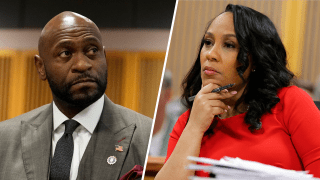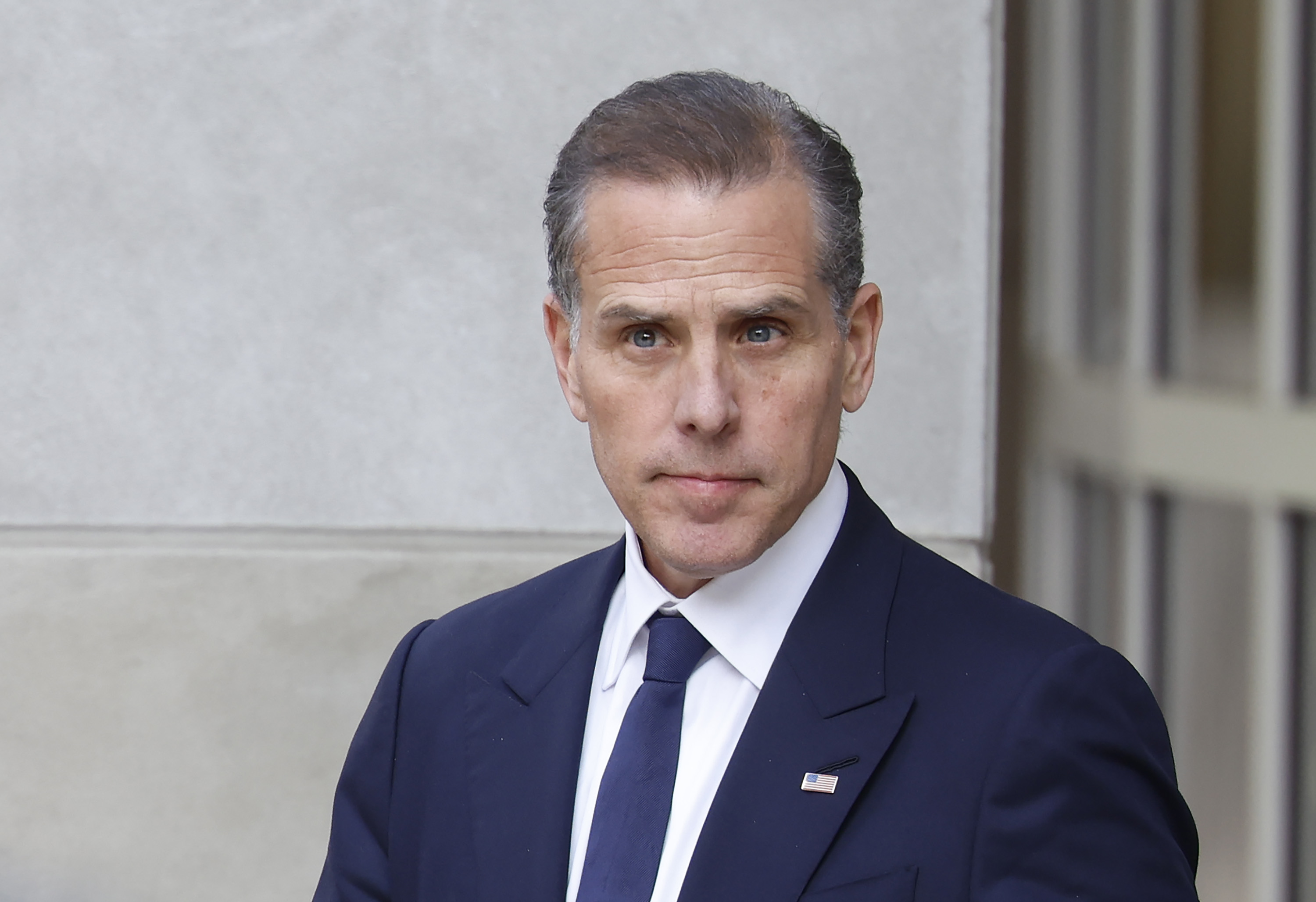
A special prosecutor who had a romantic relationship with Fulton County District Attorney Fani Willis formally withdrew Friday from the Georgia election interference case against former President Donald Trump after a judge ruled he had to leave or Willis couldn't continue to pursue the charges.
Attorney Nathan Wade's resignation allows Willis to remain on the most sprawling of four criminal cases against the presumptive Republican nominee in the 2024 presidential election.
But the long-term damage to the public perception of the prosecution remains unclear, particularly in light of Trump's relentless barrage of attacks on the pair who pledged to hold Trump accountable but found their own actions under a public microscope.
Wade offered his resignation in a letter to Willis, saying he was doing so “in the interest of democracy, in dedication to the American public and to move this case forward as quickly as possible."
“I am sure that the case, and the team, will be in good hands moving forward and justice will be served," Wade wrote.
Willis complimented Wade's “professionalism and dignity" in a letter accepting his resignation, effective immediately. She said he had endured threats against himself and his family, as well as “unjustified attacks” in the media and in court on his reputation as a lawyer.
Get Tri-state area news delivered to your inbox. Sign up for NBC New York's News Headlines newsletter.
“I will always remember — and will remind everyone — that you were brave enough to step forward and take on the investigation and prosecution of the allegations that the defendants in this case engaged in a conspiracy to overturn Georgia's 2020 Presidential Election,” Willis wrote.
U.S. & World
Trump's team felt differently.
An attorney for the former president said they respected the court’s decision but believe the judge “did not afford appropriate significance to the prosecutorial misconduct of Willis and Wade.”
“We will use all legal options available as we continue to fight to end this case, which should never have been brought in the first place,” Trump attorney Steve Sadow said.
Defense attorneys could try to appeal the ruling, but they would need the judge’s permission to do so.
The resignation came hours after Fulton County Superior Court Judge Scott McAfee said Wade had to be removed or Willis must step aside from the case. McAfee did not find that Willis’ relationship with Wade amounted to a conflict of interest but said the allegations created an “appearance of impropriety” that infected the prosecution team.
“As the case moves forward, reasonable members of the public could easily be left to wonder whether the financial exchanges have continued resulting in some form of benefit to the District Attorney, or even whether the romantic relationship has resumed," the judge wrote.
"Put differently, an outsider could reasonably think that the District Attorney is not exercising her independent professional judgment totally free of any compromising influences. As long as Wade remains on the case, this unnecessary perception will persist.”
Friday's extraordinary developments underscored the extent to which the case that began with allegations that a former president tried to undermine the will of the people who voted him out of the White House had become consumed by talk of the love lives of its top prosecutors. In accepting Wade's resignation, Willis made clear her determination to turn the page from weeks of embarrassing headlines about romantic getaways, sex and stashes of cash that have dominated the coverage of the case.
Willis hired Wade in 2021 to lead the team to investigate and ultimately prosecute Trump and 18 others on charges that they illegally tried to overturn his narrow loss to Democrat Joe Biden in Georgia in 2020. The case uses a statute normally associated with mobsters to accuse the former president, lawyers and other aides of a “criminal enterprise” to keep him in power.
Trump, the Republicans’ presumptive presidential nominee for 2024, has denied doing anything wrong and pleaded not guilty.
Willis and Wade testified at a hearing last month that they had engaged in a romantic relationship, but they rejected the idea that Willis improperly benefited from it, as lawyers for Trump and some of his co-defendants alleged. Willis and Wade insisted they didn't begin dating until after he became special prosecutor, though a former friend and employee of Willis' testified that she saw the pair hugging and kissing before he was hired.
Willis and Wade said the relationship ended in the summer of 2023. They both said that Willis either paid for things herself or used cash to reimburse Wade for travel expenses.
McAfee wrote that there was insufficient evidence that Willis had a personal stake in the prosecution. And he said he was unable to “conclusively establish by a preponderance of the evidence” whether Willis and Wade began dating before or after he was hired as special prosecutor.
“However, an odor of mendacity remains," the judge wrote. He said “reasonable questions” about whether Willis and Wade testified truthfully about the timing of their relationship “further underpin the finding of an appearance of impropriety and the need to make proportional efforts to cure it.”
Even so, he said, dismissal of the case was not the appropriate remedy to "adequately dissipate the financial cloud of impropriety and potential untruthfulness found here.”
An attorney for co-defendant Michael Roman was the first to ask McAfee to dismiss the indictment and prevent Willis and Wade and their offices from continuing to prosecute the case. The attorney, Ashleigh Merchant, alleged that Willis paid Wade large sums for his work and then improperly benefited from the prosecution of the case when Wade used his earnings to pay for vacations for the two of them.
Merchant said in a statement Friday that while Roman's team maintains that the judge should have disqualified Willis' office entirely, the judge clearly agreed with the defense that there is a “risk to the future of this case” if Willis "doesn’t quickly work to cure her conflict.”
The ruling comes days after the judge dismissed three of 13 counts against Trump in the indictment and an additional three counts against other people. The judge said prosecutors failed to allege sufficient detail regarding the nature of the allegations related to soliciting public officers to violate their oaths. However, the bulk of the 41-count indictment remains intact, and the judge said prosecutors could seek a new indictment to try to reinstate the charges he dismissed.
One dismissed count stemmed from a phone call Trump made to Georgia Secretary of State Brad Raffensperger, a fellow Republican, on Jan. 2, 2021, in which Trump urged Raffensperger to “find 11,780 votes” for him to win the election in the state.
Of the 19 people originally charged in the indictment, four have pleaded guilty after reaching deals with prosecutors. They include prominent Trump allies and attorneys Sidney Powell and Kenneth Chesebro.



